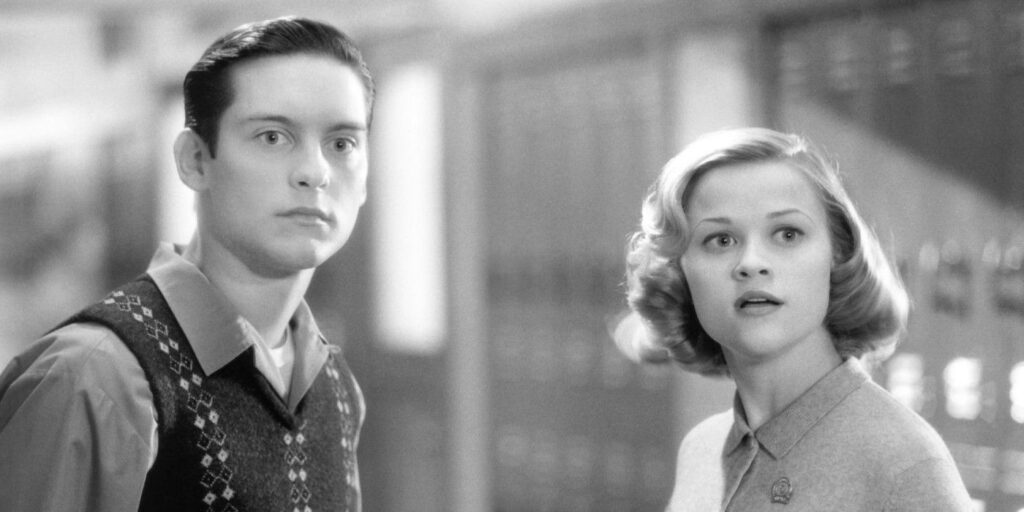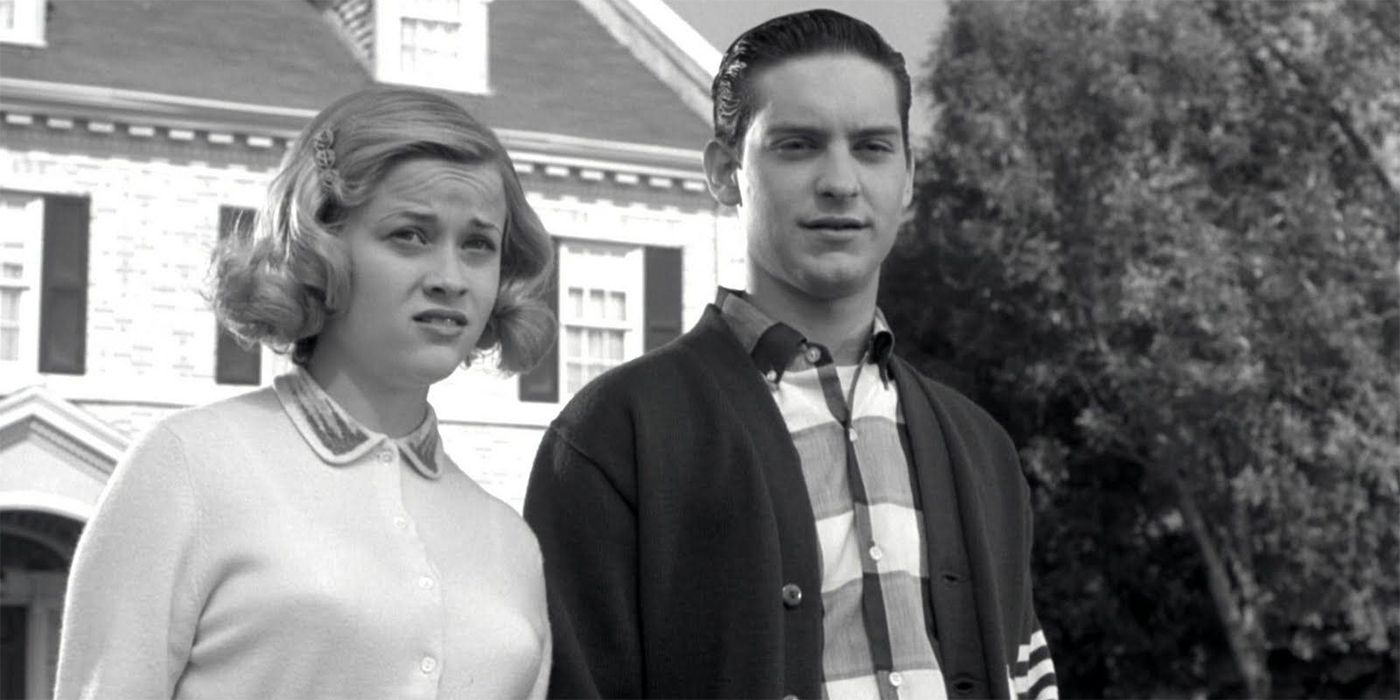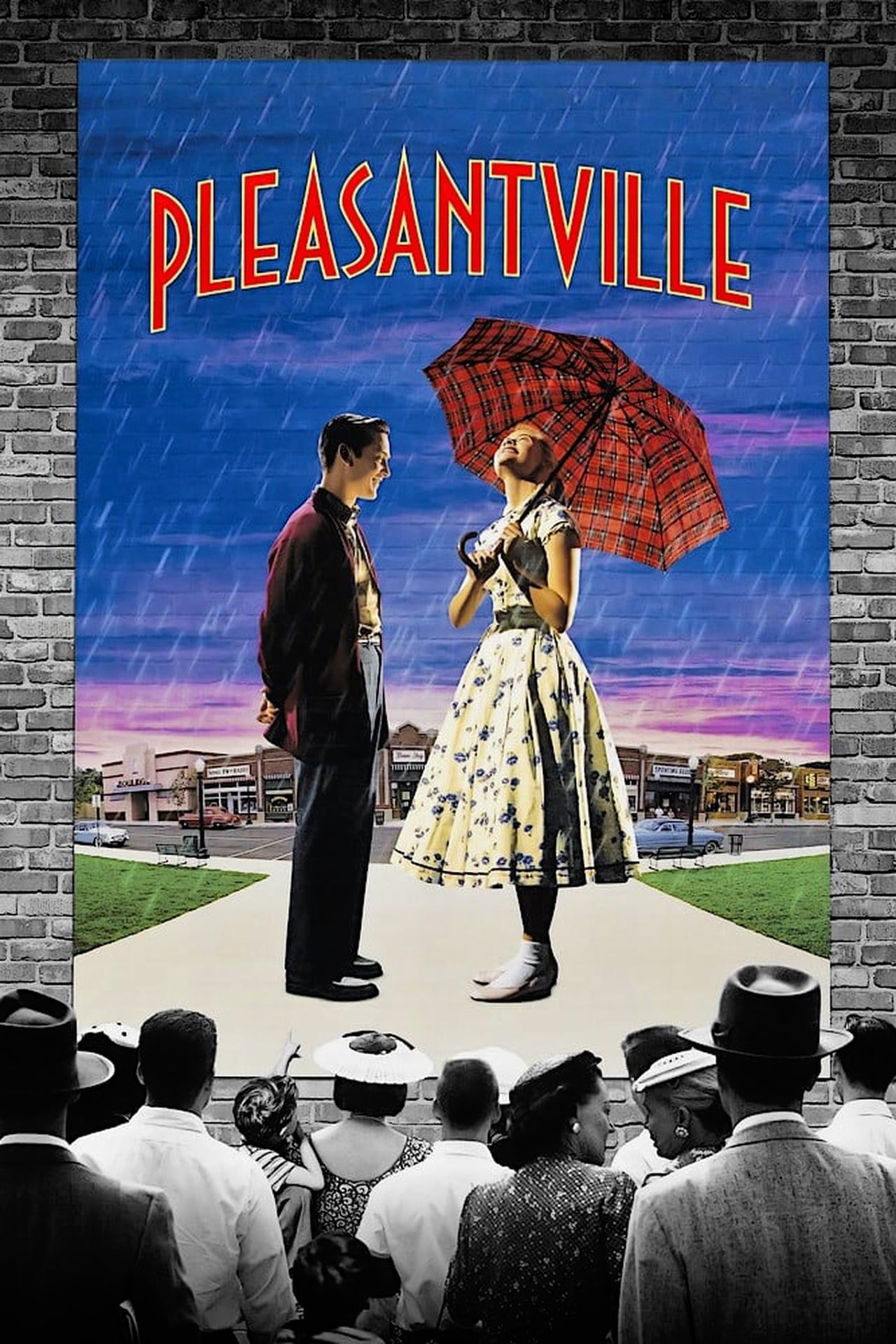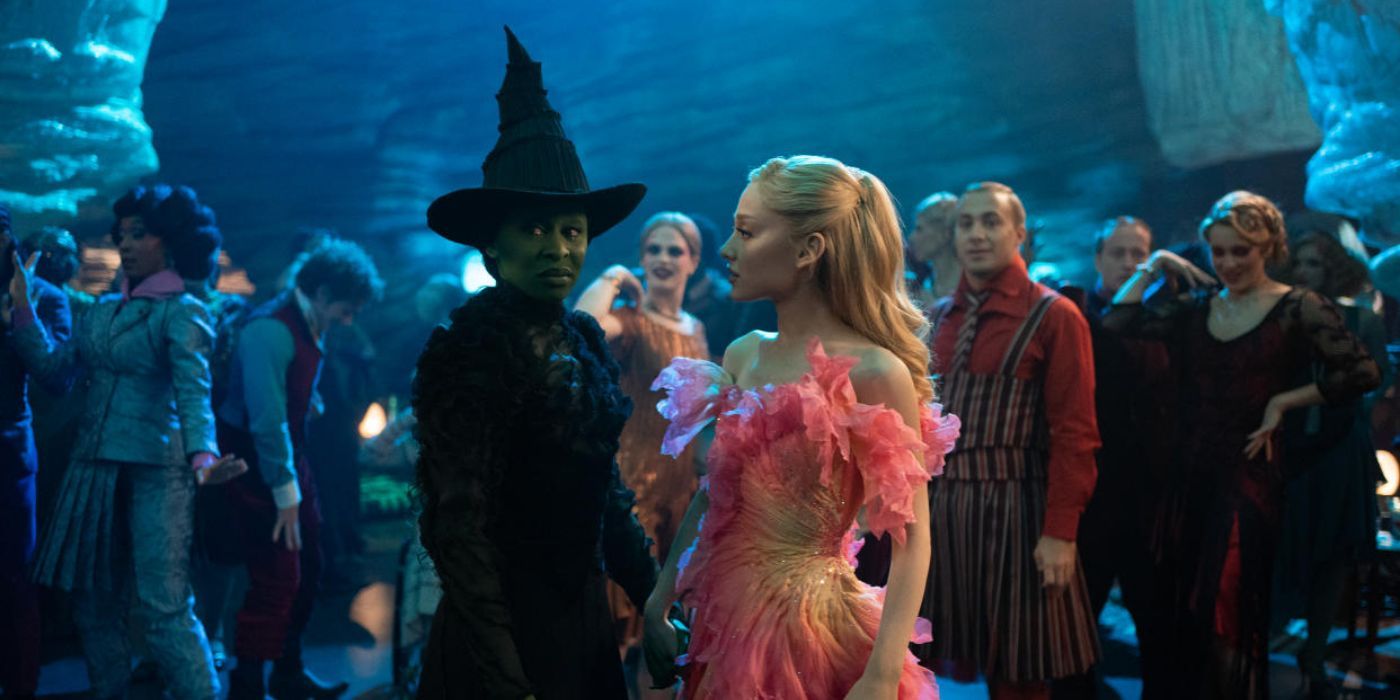Every Year, This Tobey Maguire and Reese Witherspoon Fantasy Gets Better and Better

Everyone probably has that favorite TV show they wish they could be a part of: maybe they wanted to hang out with the cast of Friends or fight the evils in Buffy the Vampire Slayer. Pleasantville takes this to its ultimate extreme with twin siblings David (Tobey Maguire) and Jennifer (Reese Witherspoon). David and Jennifer couldn’t be more different: he’s fairly shy and takes refuge in the titular show “Pleasantville”, while she is fairly popular but struggles with school. After they break their TV’s remote control, a mysterious repairman (Don Knotts) grants them a replacement that teleports them into the world of Pleasantville.
‘Pleasantville’ Is a Story About Embracing Change
When David and Jennifer enter Pleasantville, they soon learn that it’s a very predictable place. The firefighters there never actually put out fires, instead rescuing cats from trees. Bill Johnson (Jeff Daniels), who owns the malt shop that Pleasantville’s teens frequent, has shined the counter so much he’s left a mark in the vinyl. To hammer home the repetition, the roads in Pleasantville are circular, meaning that if you try to leave, you go right back where you started. But as David and Jennifer start to interact with the world around them, it starts to change. Not only are people opening up to concepts like sex and fire – in one of the film’s more iconic scenes, David tries to convince the firefighters to put out a burning tree, and they’re left stumped. But the changes come with a unique visual effect: Pleasantville, which is black and white, starts to showcase signs of color. But some of the citizens react with hostility to color seeping into their world, going so far as to enact laws to keep the “colored” people out of the public. (Here’s where I admit that while I understand the angle writer/director Gary Ross was going for, the discrimination in Pleasantville hasn’t aged particularly well, especially when it’s a town full of white people).
What has aged well are the themes of how repression can negatively affect your life. Nowhere is this more clear than with Betty Parker (Joan Allen); while she comes off as the stereotypical 1950s housewife, it’s pretty clear that she is burning with a desire that her husband George (William H. Macy) is failing to reciprocate. But after she embraces her passion instead of holding it in, she becomes colorized. So does Bill, who trades scooping ice cream for painting, and eventually discovers his own passion for Betty. Ross was upfront about what he wanted to say with Pleasantville: “This movie is about the fact that personal repression gives rise to larger political oppression…That when we’re afraid of certain things in ourselves or we’re afraid of change, we project those fears onto other things, and a lot of very ugly social situations can develop.” On the other hand, having outlets like sex or painting to pour that passion into is a healthy thing, as you can express your emotions better instead of bottling them up.
Without Tobey Maguire and Reese Witherspoon, ‘Pleasantville’ Wouldn’t Work
Pleasantville works as well as it does thanks to the performances of Maguire and Witherspoon. Witherspoon comes off as a bratty, unpleasant girl who only seems interested in boys and her appearance; Maguire tends to be rather reserved. David and Jennifer end up playing the parts of Bud and Mary Lou, George and Betty’s children, but while David is content to play out a role, Jennifer wants to shake things up. It turns out that, like the rest of Pleasantville, the siblings are hiding some of their own deep desires and wind up confronting them; he learns to stand up for others, and that everything doesn’t have to be perfect, while she discovers her passion for books; she fittingly loves reading Lady Chatterley’s Lover, which mirrors her current situation to a T. It all comes to a head in a trial scene where David confronts Pleasantville’s mayor and tells him that change isn’t a bad thing. This is a far cry from the quiet kid he once was, and it’s a great display of Maguire’s talent. Pleasantville would lead to bigger roles for both Maguire and Witherspoon: a year after its release, Witherspoon had a double dose of success with the release of Cruel Intentions and Election, while Maguire landed The Cider House Rules and his most iconic role in Sam Raimi‘s Spider-Man.
If You Liked ‘Wicked,’ You Have ‘Pleasantville’ To Thank
Years after its release, Pleasantville wound up as an unexpected influence on the Wicked films. Director Jon M. Chu highlighted Pleasantville and The Truman Show as major influences for his take on Oz, and how Elphaba (Cynthia Erivo) learning about the plight the animals face in Oz leads to her defying the Wizard (Jeff Goldblum). “It helps create this idea of the rebelliousness that this new younger generation are discovering,” he explained in an Entertainment Weekly interview. “How far will that take everybody in Oz throughout the course of the whole story of both movies? It’s an awakening of a generation. I always see it as a little bit of Pleasantville, a little bit of The Truman Show. You start to see the truth about things that maybe you were taught differently.”
The fact that Pleasantville can influence other filmmakers is proof that its themes still resonate to this day. It also shows that change is constant, and that it’s worth embracing rather than suppressing. At the risk of sounding cliche, this is a film that literally shows its viewers how the world isn’t black and white.

Pleasantville
- Release Date
-
October 23, 1998
- Runtime
-
124 minutes
- Director
-
Gary Ross
- Writers
-
Gary Ross






